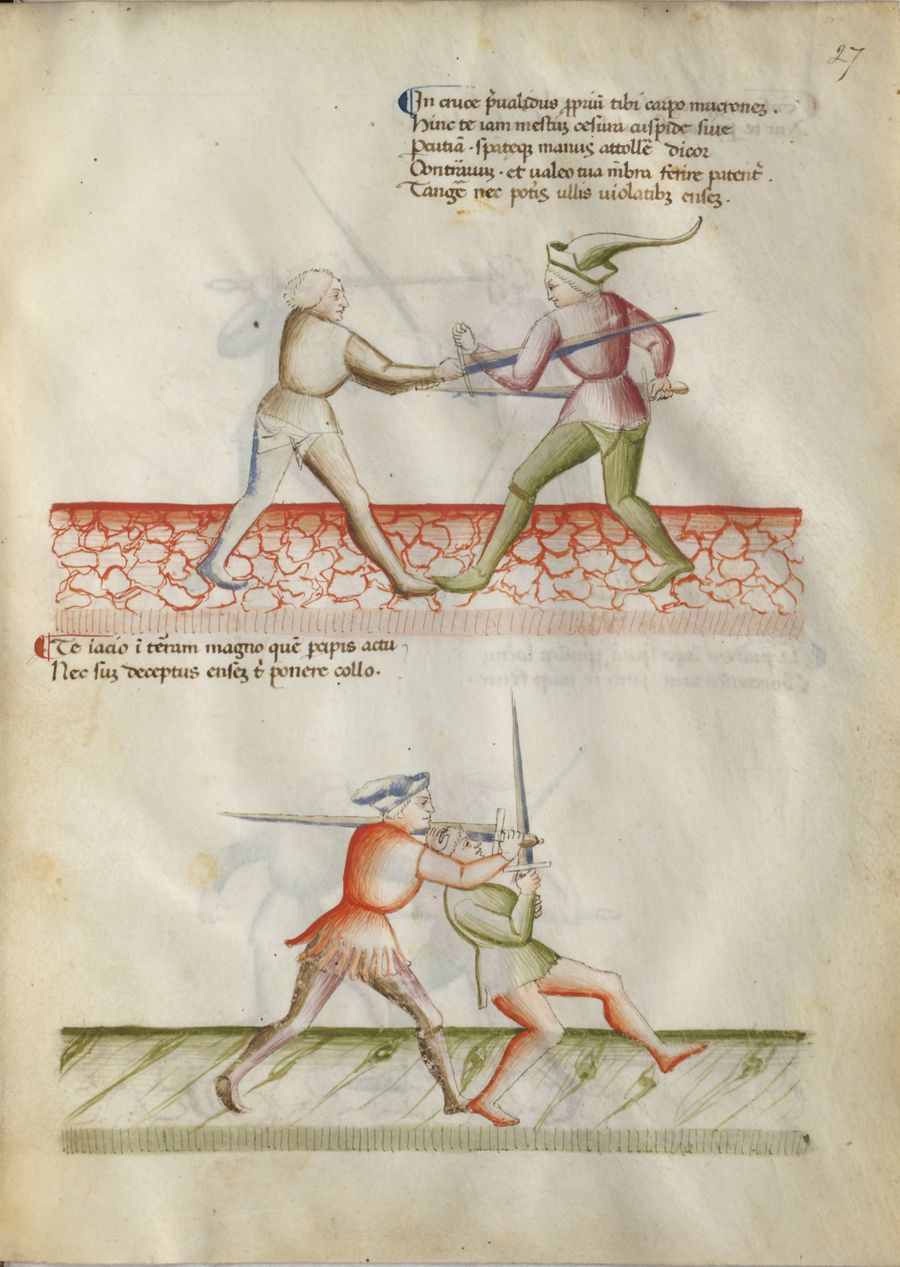|
|
You are not currently logged in. Are you accessing the unsecure (http) portal? Click here to switch to the secure portal. |
User:Kendra Brown/Florius/English MS Latin 11269 27r
Latin 27r
- ¶ In cruce prevalidus proprium tibi carpo mucronem.
Hinc te iam mestum cesura cuspide sive
Percutiam. spätaeque manus attollere dicor
Conträrium[1]. et valeo tua membra ferire patenter.
Tangere nec poteris ullis violatibus ensem.
¶ Te iacio in terram magno/ quem precipis / actu
Nec sum deceptus ensem tibi ponere collo.
Italian
|
I've imprisoned your sword by the hilt, |
[23a-b] La tua spada per l'elço si o inpresonada |
|
I send you to the ground in this match; |
[22b-a] Io te mando in terra a'questo partito |
English 27r
✅¶ I, strong in the preceding cross, seize your own special sword [mucronem].
Hence if I would now hit you, the Ill-Omened One, cutting with the point [cuspide].
And I am called the counter to lifting the sword [spatae] in the hands.[2]
And I am able to openly strike your limbs.
You won't be able to touch the sword [ensem] with any desecration.
✅¶ I throw you to the ground with this great action, which you have anticipated[3];
I was not deceived and I place the sword to your neck.
- ↑ These umlaut-like dots appear on a few other pages, where they indicate words that should be read as a pair. Here the marked words are both part of a phrase naming a technique, similar to other times the dots appear. Interestingly, on this page it looks like the dots were written by the original scribe (for example, the dots over the a in spataeque have the same faded look as the a). However, appearing on so few pages, these dots don't seem to be part of the overall orthographic style of the manuscript.
- ↑ This actually reads 'lifting the hands and the sword located in the hands', as spatae is locative case, or indicative of the sword's location. We omitted the repetitions for the sake of clarity.
- ↑ Because this clause was literally inserted into the 'great action', interrupting it, we translated it in past tense, even though it is grammatically present tense.

